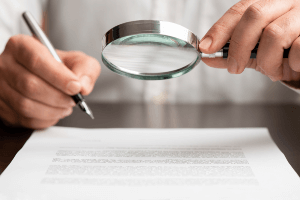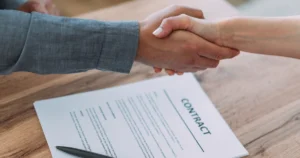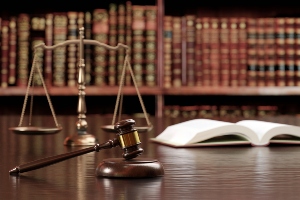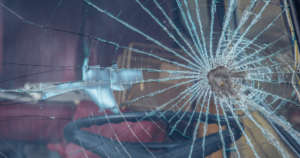 When a lawsuit is filed, there are certain steps that follow before the case makes it to court. One of the first steps is called discovery. Simply put, discovery is the exchange of information between disputing parties in a lawsuit. This process allows for each side to gain information regarding the opposing side’s claims and what evidence is being used to fortify the case.
When a lawsuit is filed, there are certain steps that follow before the case makes it to court. One of the first steps is called discovery. Simply put, discovery is the exchange of information between disputing parties in a lawsuit. This process allows for each side to gain information regarding the opposing side’s claims and what evidence is being used to fortify the case.
Below, our South Bend personal injury lawyers explain this process in more detail. We have decades of experience in countless cases, many of which have gone through the discovery process.
We do not charge you any upfront fees, which means you do not pay us during discovery or any other part of the case. We only get paid if we recover compensation on your behalf.
What is Allowed in the Discovery Process?
The process of discovery permits the disputing parties in a lawsuit to obtain more information that relates to the lawsuit. This information includes things such as:
- Medical records
- Financial records
- Witness statements
- Evidence to support the claim
However, there are some limits as to what can be discovered. For example, privileged information is not discoverable. Some examples of privileged information include:
- Priest-penitent conversations
- Doctor-patient conversations
- Information protected by the privacy rights of third parties
- Private personal matters
- Client-attorney conversations
- Husband-wife conversations
What Steps are Involved in the Discovery Process?
The discovery process consists of four key actions.
Interrogatories
These are written questions sent by each party to be answered by the negligent party and the injury victim. The questions are general in scope and usually consist of names, addresses, medical histories, and descriptions of how the accident occurred and what injuries were suffered.
Usually, your attorney will ask you these questions and provide a draft response to you for approval before sending a final copy to the negligent party. The reason for a first draft of the questions is to provide you an opportunity to clarify some of the questions before providing an official answer for the record.
Request to Produce
This step is when the disputing parties both ask for a production of documents, such as medical or financial records to review. Generally, all parties are legally obligated to turn over the relevant documents requested in this step of the discovery process.
Request for Admissions
The next step is usually a request for admission, which is a request from one, or both, parties to admit, deny or object to a statement from the opposing party. For example, one party may ask the other if he or she was intoxicated at the time of a car accident. The responding party then has 30 days to reply. Failure to meet the deadline will automatically mean the party is affirming the statement.
Depositions
The final step in the discovery process is deposition. This is when each side answers questions from the opposing party’s attorneys on the record to be used in court later. Usually, these depositions are recorded by a court reporter and sometimes on camera. Deviations from one party’s answers during a deposition in the courtroom may hurt a case.
For example, if a drunk driver denies having been drunk when the accident occurred during a deposition, but later admits to it in court, that person may face legal consequences for being untruthful.
Need Help with Your Claim? Call Us Today
Suffering an injury due to someone else’s negligence may be an extremely stressful situation for many people. Filing a lawsuit to recover the compensation you need may be even more stress-inducing, time-consuming and perhaps costly.
Fortunately, our attorneys are prepared to handle the legal process on your behalf. This includes absorbing legal fees while your case is ongoing. Remember, we do not charge you any upfront fees if you choose to let us represent you during your claim. We only get paid if you do.
Speak to our attorneys during a free consultation to learn about what legal options may be available to you after an injury caused by someone else’s negligence. We have decades of experience fighting on behalf of injury victims in Indiana and have successfully recovered millions on their behalf.
Give us a call today to learn more: (574) 444-0741












